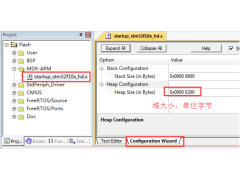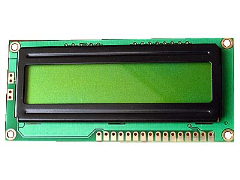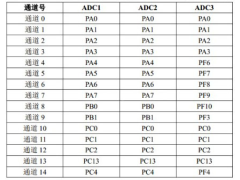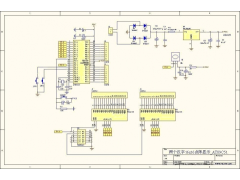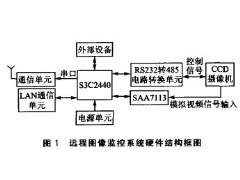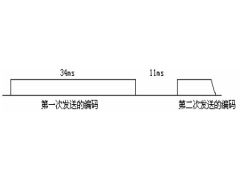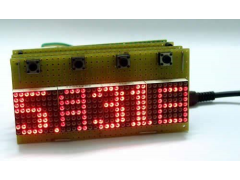示例程序jiq
/*
* jiq.c -- the just-in-queue module
*
*/
#ifndef __KERNEL__
# define __KERNEL__
#endif
#ifndef MODULE
# define MODULE
#endif
#include
#include
#include
#include
#include
#include
#include
#include
#include
#include "sysdep.h"
/*
* This module is a silly one: it only embeds short code fragments
* that show how enqueued tasks `feel' theit environment
*/
#define LIMIT (PAGE_SIZE-128) /* don't print any more after this size */
/*
* Print information about the current environment. This is called from
* within the task queues. If the limit is reched, awake the reading
* process.
*/
DECLARE_WAIT_QUEUE_HEAD (jiq_wait);
struct tq_struct jiq_task; /* global: initialized to zero */
/*
* Keep track of info we need between task queue runs.
*/
struct clientdata {
int len;
char *buf;
unsigned long jiffies;
task_queue *queue;
} jiq_data;
#define SCHEDULER_QUEUE ((task_queue *) 1)
#ifdef HAVE_TASKLETS
void jiq_print_tasklet (unsigned long);
DECLARE_TASKLET (jiq_tasklet, jiq_print_tasklet, (unsigned long) &jiq_data);
#endif /* HAVE_TASKLETS */
/*
* Do the printing; return non-zero if the task should be rescheduled.
*/
int jiq_print(void *ptr)
{
struct clientdata *data = (struct clientdata *)ptr;
int len = data->len;
char *buf = data->buf;
unsigned long j = jiffies;
if (len > LIMIT) {
wake_up_interruptible(&jiq_wait);
return 0;
}
if (len == 0)
len = sprintf(buf," time delta interrupt pid cpu command\n");
else
len =0;
/* intr_count is only exported since 1.3.5, but 1.99.4 is needed anyways */
len += sprintf(buf+len,"%9li %3li %i %5i %3i %s\n",
j, j - data->jiffies,
in_interrupt (), current->pid, smp_processor_id (), current->comm);
data->len += len;
data->buf += len;
data->jiffies = j;
return 1;
}
/*
* Call jiq_print from a task queue
*/
void jiq_print_tq(void *ptr)
{
if (jiq_print (ptr)) {
struct clientdata *data = (struct clientdata *)ptr;
if (data->queue == SCHEDULER_QUEUE)
schedule_task(&jiq_task);
else if (data->queue)
queue_task(&jiq_task, data->queue);
if (data->queue == &tq_immediate)
mark_bh(IMMEDIATE_BH); /* this one needs to be marked */
}
}
/*
* Use the scheduler queue -- /proc/jiqsched
*/
int jiq_read_sched(char *buf, char **start, off_t offset,
int len, int *eof, void *data)
{
jiq_data.len = 0; /* nothing printed, yet */
jiq_data.buf = buf; /* print in this place */
jiq_data.jiffies = jiffies; /* initial time */
/* jiq_print will queue_task() again in jiq_data.queue */
jiq_data.queue = SCHEDULER_QUEUE;
schedule_task(&jiq_task); /* ready to run */
interruptible_sleep_on(&jiq_wait); /* sleep till completion */
*eof = 1;
return jiq_data.len;
}
#ifdef USE_PROC_REGISTER
static int jiq_old_read_sched(char *buf, char **start, off_t offset, int len,
int unused)
{
int eof;
return jiq_read_sched(buf, start, offset, len, &eof, NULL);
}
struct proc_dir_entry jiq_proc_sched = {
0, /* low_ino: the inode -- dynamic */
8, "jiqsched", /* len of name and name */
S_IFREG | S_IRUGO, /* mode */
1, 0, 0, /* nlinks, owner, group */
0, NULL, /* size - unused; operations -- use default */
&jiq_old_read_sched, /* function used to read data */
/* nothing more */
};
#endif
int jiq_read_timer(char *buf, char **start, off_t offset,
int len, int *eof, void *data)
{
jiq_data.len = 0; /* nothing printed, yet */
jiq_data.buf = buf; /* print in this place */
jiq_data.jiffies = jiffies; /* initial time */
jiq_data.queue = &tq_timer; /* re-register yourself here */
queue_task(&jiq_task, &tq_timer); /* ready to run */
interruptible_sleep_on(&jiq_wait); /* sleep till completion */
*eof = 1;
return jiq_data.len;
}
#ifdef USE_PROC_REGISTER
static int jiq_old_read_timer(char *buf, char **start, off_t offset, int len,
int unused)
{
int eof;
return jiq_read_timer(buf, start, offset, len, &eof, NULL);
}
struct proc_dir_entry jiq_proc_timer = {
0, /* low_ino: the inode -- dynamic */
8, "jiqtimer", /* len of name and name */
S_IFREG | S_IRUGO, /* mode */
1, 0, 0, /* nlinks, owner, group */
0, NULL, /* size - unused; operations -- use default */
&jiq_old_read_timer, /* function used to read data */
/* nothing more */
};
#endif
int jiq_read_immed(char *buf, char **start, off_t offset,
int len, int *eof, void *data)
{
jiq_data.len = 0; /* nothing printed, yet */
jiq_data.buf = buf; /* print in this place */
jiq_data.jiffies = jiffies; /* initial time */
jiq_data.queue = &tq_immediate; /* re-register yourself here */
queue_task(&jiq_task, &tq_immediate); /* ready to run */
mark_bh(IMMEDIATE_BH);
interruptible_sleep_on(&jiq_wait); /* sleep till completion */
*eof = 1;
return jiq_data.len;
}
#ifdef USE_PROC_REGISTER
static int jiq_old_read_immed(char *buf, char **start, off_t offset, int len,
int unused)
{
int eof;
return jiq_read_immed(buf, start, offset, len, &eof, NULL);
}
struct proc_dir_entry jiq_proc_immed = {
0, /* low_ino: the inode -- dynamic */
8, "jiqimmed", /* len of name and name */
S_IFREG | S_IRUGO, /* mode */
1, 0, 0, /* nlinks, owner, group */
0, NULL, /* size - unused; operations -- use default */
&jiq_old_read_immed, /* function used to read data */
/* nothing more */
};
#endif
#ifdef HAVE_TASKLETS
/*
* Call jiq_print from a tasklet
*/
void jiq_print_tasklet(unsigned long ptr)
{
if (jiq_print ((void *) ptr))
tasklet_schedule (&jiq_tasklet);
}
int jiq_read_tasklet(char *buf, char **start, off_t offset, int len,
int *eof, void *data)
{
jiq_data.len = 0; /* nothing printed, yet */
jiq_data.buf = buf; /* print in this place */
jiq_data.jiffies = jiffies; /* initial time */
tasklet_schedule(&jiq_tasklet);
interruptible_sleep_on(&jiq_wait); /* sleep till completion */
*eof = 1;
return jiq_data.len;
}
/* No PROC_REGISTER junk since tasklets postdate all that */
#endif /* HAVE_TASKLETS */
/*
* This one, instead, tests out the timers.
*/
struct timer_list jiq_timer;
void jiq_timedout(unsigned long ptr)
{
jiq_print((void *)ptr); /* print a line */
wake_up_interruptible(&jiq_wait); /* awake the process */
}
int jiq_read_run_timer(char *buf, char **start, off_t offset,
int len, int *eof, void *data)
{
jiq_data.len = 0; /* prepare the argument for jiq_print() */
jiq_data.buf = buf;
jiq_data.jiffies = jiffies;
jiq_data.queue = NULL; /* don't requeue */
init_timer(&jiq_timer); /* init the timer structure */
jiq_timer.function = jiq_timedout;
jiq_timer.data = (unsigned long)&jiq_data;
jiq_timer.expires = jiffies + HZ; /* one second */
jiq_print(&jiq_data); /* print and go to sleep */
add_timer(&jiq_timer);
interruptible_sleep_on(&jiq_wait);
del_timer_sync(&jiq_timer); /* in case a signal woke us up */
*eof = 1;
return jiq_data.len;
}
#ifdef USE_PROC_REGISTER
static int jiq_old_read_run_timer(char *buf, char **start, off_t offset, int len,
int unused)
{
int eof;
return jiq_read_run_timer(buf, start, offset, len, &eof, NULL);
}
struct proc_dir_entry jiq_proc_run_timer = {
0, /* low_ino: the inode -- dynamic */
7, "jitimer", /* len of name and name */
S_IFREG | S_IRUGO, /* mode */
1, 0, 0, /* nlinks, owner, group */
0, NULL, /* size - unused; operations -- use default */
&jiq_old_read_run_timer, /* function used to read data */
/* nothing more */
};
#endif
/*
* the init/clean material
*/
int jiq_init(void)
{
/* these lines are in jiq_init() */
jiq_task.routine = jiq_print_tq;
jiq_task.data = (void *)&jiq_data;
#ifdef USE_PROC_REGISTER
proc_register_dynamic(&proc_root, &jiq_proc_sched);
proc_register_dynamic(&proc_root, &jiq_proc_timer);
proc_register_dynamic(&proc_root, &jiq_proc_immed);
proc_register_dynamic(&proc_root, &jiq_proc_run_timer);
#else
create_proc_read_entry("jiqsched", 0, NULL, jiq_read_sched, NULL);
create_proc_read_entry("jiqtimer", 0, NULL, jiq_read_timer, NULL);
create_proc_read_entry("jiqimmed", 0, NULL, jiq_read_immed, NULL);
create_proc_read_entry("jitimer", 0, NULL, jiq_read_run_timer, NULL);
#ifdef HAVE_TASKLETS
create_proc_read_entry("jiqtasklet", 0, NULL, jiq_read_tasklet, NULL);
#endif
#endif
#ifndef JIT_DEBUG
EXPORT_NO_SYMBOLS;
#endif
return 0; /* succeed */
}
void jiq_cleanup(void)
{
#ifdef USE_PROC_REGISTER
proc_unregister(&proc_root, jiq_proc_sched.low_ino);
proc_unregister(&proc_root, jiq_proc_timer.low_ino);
proc_unregister(&proc_root, jiq_proc_immed.low_ino);
proc_unregister(&proc_root, jiq_proc_run_timer.low_ino);
#else
remove_proc_entry("jiqsched", 0);
remove_proc_entry("jiqtimer", 0);
remove_proc_entry("jiqimmed", 0);
remove_proc_entry("jitimer", 0);
#ifdef HAVE_TASKLETS
remove_proc_entry("jiqtasklet", 0);
#endif
#endif
}
module_init(jiq_init);
module_exit(jiq_cleanup);
延迟计算的示例程序包含在jiq(Just In Queue)模块中,该模块创建 /proc 文件,可以用 dd 或者其他工具来读,这点上与 jit 模块很相似。读 jiq 文件的进程被转入睡眠状态直到缓冲区满。
/proc文件的缓冲区是内存中的一页:4KB,或对应于使用平台的尺寸。
睡眠是由一个简单的等待队列处理的,声明为
DECLARE_WAIT_QUEUE_HEAD (jiq_wait);
缓冲区由不断运行的任务队列来填充。任务队列的每次运行都会在要填充的缓冲区中添加一个字符串,该字符串记录了当前时间(jiffies值),当前进程以及 in_interrupt的返回值。
填充缓冲区的代码都在jiq_print_tq函数中,任务队列的每遍运行都要调用它。打印函数没什么意思,不在这里列出,我们还是来看看插入队列的任务的初始化代码:
struct tq_struct jiq_task; /* global: initialized to zero */
/* these lines are in jiq_init() */
jiq_task.routine = jiq_print_tq;
jiq_task.data = (void *)&jiq_data;
这里没必要对 jiq_task结构的 sync成员和next成员清零,因为静态变量已由编译器初始化为零了。
-
热敏电阻温度阻值查询程序2024年11月13日 74
-
C99语法规则2024年11月16日 675
-
FreeRTOS 动态内存管理2024年11月12日 448
-
一款常用buffer程序2024年11月06日 88
-
1602液晶显示模块的应用2012年08月03日 192
-
GNU C 9条扩展语法2024年11月18日 261
-
如何实现STM32F407单片机的ADC转换2024年11月15日 300
-
STM32使用中断屏蔽寄存器BASEPRI保护临界段2024年11月15日 195
-
C99语法规则2024年11月16日 675
-
51单片机LED16*16点阵滚动显示2012年09月05日 664
-
FreeRTOS 动态内存管理2024年11月12日 448
-
ARM9远程图像无线监控系统2012年07月03日 424
-
用单片机模拟2272软件解码2012年09月06日 300
-
如何实现STM32F407单片机的ADC转换2024年11月15日 300
-
新颖的单片机LED钟2012年08月06日 278
-
GNU C 9条扩展语法2024年11月18日 261

